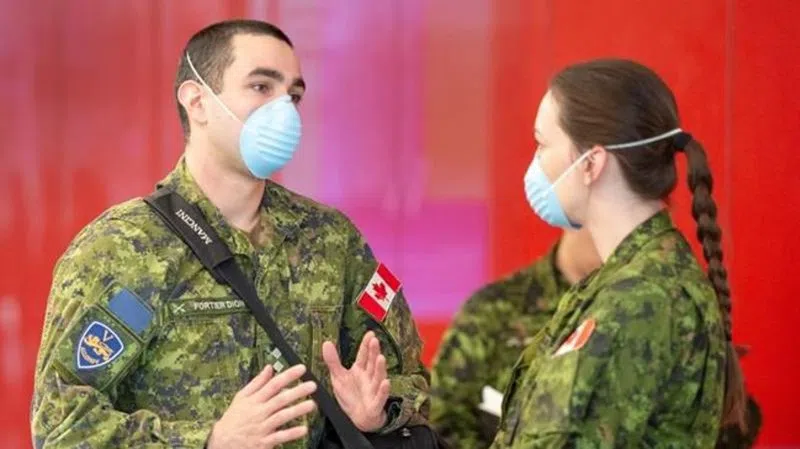
Soldiers get orderly training ahead of Quebec long-term care deployment
MONTREAL — Canadian Forces soldiers got a crash course in senior care Wednesday as members with no medical background or orderly experience prepared to deploy to Quebec long-term care homes hardest hit by COVID-19.
The first wave of soldiers — about 400 in total — began arriving in the Montreal area to receive intensive training and familiarize themselves with 13 homes heavily hit by COVID-19.
At a Montreal junior college, they learned the basics from the Red Cross on how to deal with elderly patients before they are sent to specific homes on Friday and Saturday. On site they will perform such tasks as disinfecting rooms, managing logistics, moving equipment and feeding patients.
“It’s definitely a different environment for us, but I think our flexibility, empathy and recognition that our civilian health-care counterparts are shouldering a significant burden at this time is motivating them to just get involved,” Col. Tim Arsenault said.


